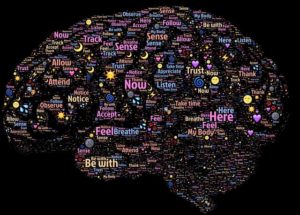
Neuroplasticity and Drug or Alcohol Addiction
Depending on the individual’s experiences, neuroplastic changes can be negative or positive and can take place over time or acutely. Addiction to drugs or alcohol causes changes in the brain, damaging the neural pathways associated with reward, pleasure, and enjoyment. As the pathways are continually overstimulated by drugs or alcohol, the brain becomes tolerant to the substance and requires more of it to attain the user’s desired results. The brain’s neuroplasticity, in this case, is what helps it “learn” to crave substances, and this leads to addiction.
How Does Substance Withdrawal Affect Your Brain?
When a person with a substance use disorder stops using drugs or drinking alcohol, they go through withdrawal. Their brain changes, just as it changed when they were in active addiction. As withdrawal symptoms begin, the individual’s brain and body start craving their substance of choice. The cravings occur because their brain has learned to associate drugs or alcohol with pleasure and reward.
Neuroplasticity and Addiction Recovery
Recovering from a drug or alcohol addiction and attaining lasting sobriety takes time, commitment, and hard work. In recovery, as the person replaces their harmful drug or alcohol use with a healthy, enjoyable alternative, the brain creates new neural pathways. The changes in the brain reinforce the new habit. As the person continually repeats the new healthy habit, the brain’s neuroplasticity strengthens the new neural pathway. Without reinforcement, the neural pathways associated with substance use weaken.
Neuroplasticity and Addiction Treatment
The effectiveness of many types of therapies used in addiction treatment is increased by the brain’s amazing ability to change and reshape its neural pathways. Here are several treatment modalities that promote neuroplasticity.
- Cognitive-behavioral therapy (CBT) is a type of talk therapy. It helps people realize and understand the connections between their thoughts, actions, and feelings. Once they recognize the connections and understand them, they can learn healthier, effective ways of responding to challenges.
- Mindfulness, the focused attention on the present moment, promotes positive changes in the brain related to mood, focus, attention, stress, and memory. The new neural pathways created through neuroplasticity while practicing mindfulness help the person learn healthy ways of responding to stress and cravings, reducing their risk of relapse.
- Art therapy provides a person the chance to express their inner feelings and thoughts so they can then process them with a therapist. Engaging in creativity through art causes thought patterns in the brain to grow and change, weakening harmful behaviors and strengthening healthy ones.
Several other forms of addiction treatment therapies and cognitive exercises that promote neuroplasticity include music therapy, recreation therapy, and journaling.
If You Need Help
Addiction to drugs or alcohol does not have to continue to ruin your life. If you or someone you love struggles with a substance use disorder, now is the time to get help. At English Mountain Recovery, in the Smoky Mountains of Tennessee, skilled professionals will give you the care you need. Call today and learn how to begin your journey on the path to recovery.
About the Author: 
Terry Hurley is a retired educational professional and freelance writer with more than fifty years of experience. A former reading specialist and learning center director, Terry loved her years working with children in the educational field. She has written extensively for print and online publications specializing in education and health issues. For the last six years, her writing focus has been on addiction and mental health issues.




